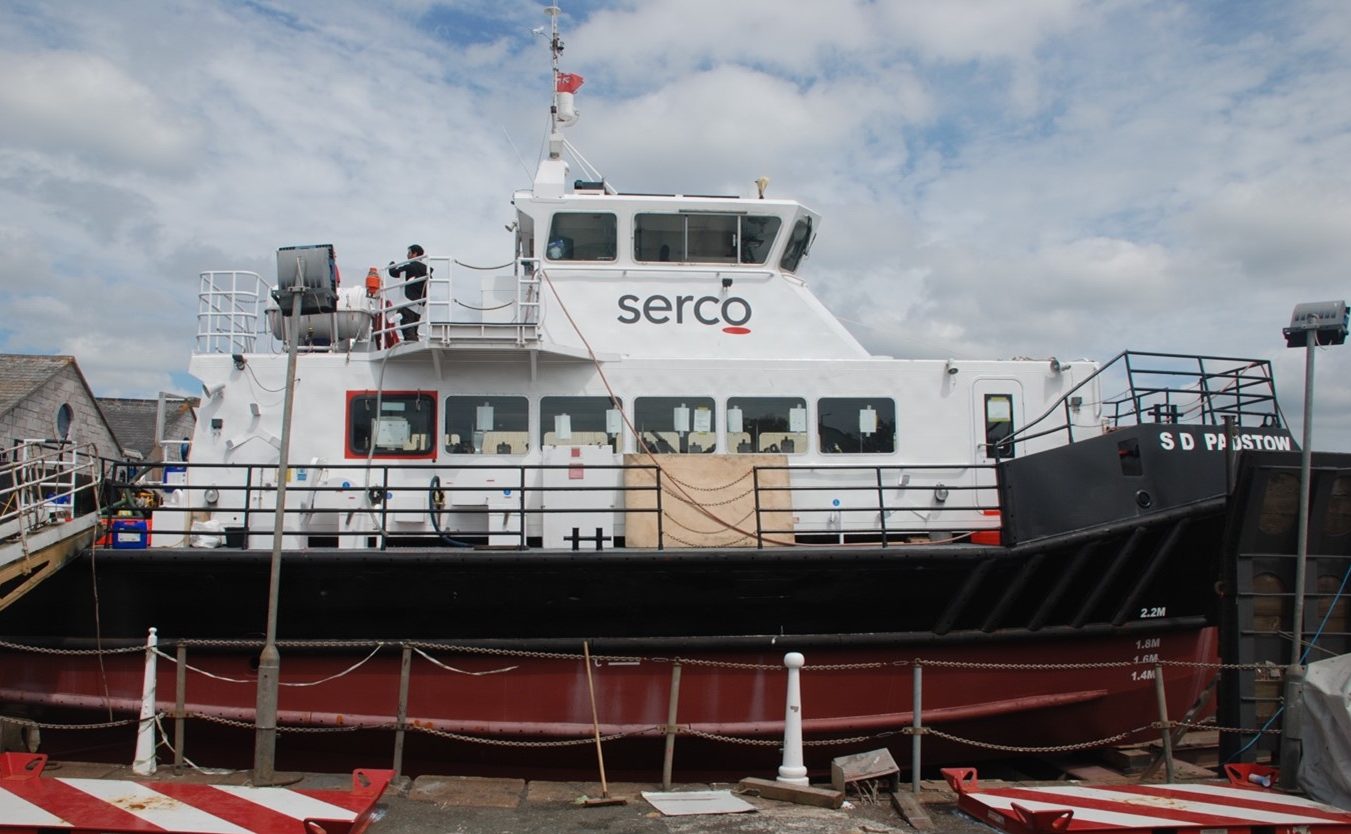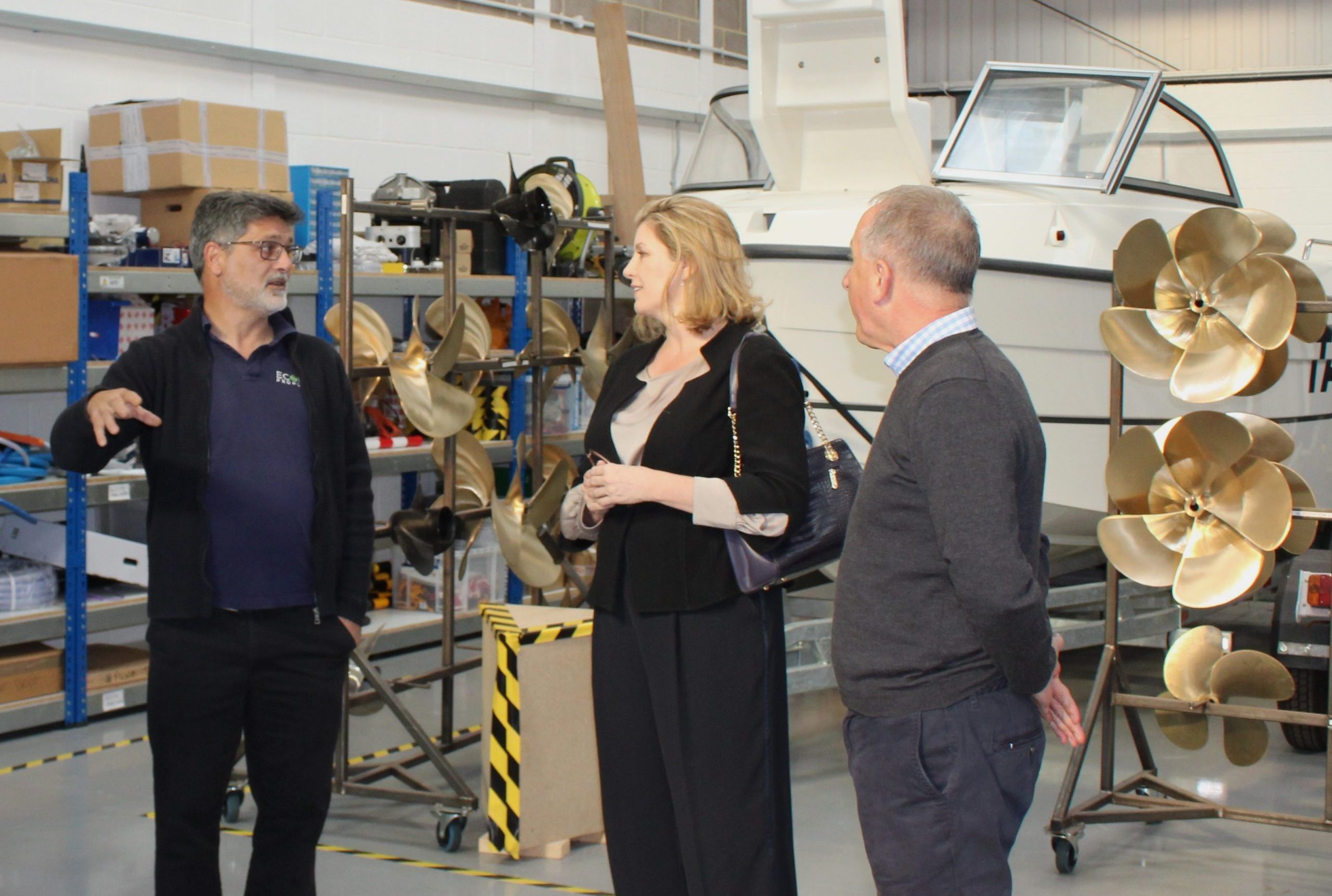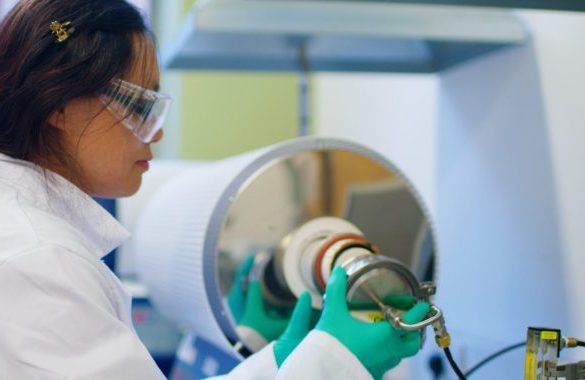In 2021 Ecomar Propulsion and Serco embarked on an ambitious joint investigation to convert Serco’s fleet of crew transfer vessels from diesel to fully electric power.
Serco is a global PLC with hundreds of vessels and a commitment to rapid reduction of its Greenhouse Gas emissions. The shift from hydrocarbon power to clean technology is at the heart of their proposition and plans.
Ecomar Propulsion is a high tech R&D and manufacturing company based in the UK which specialises in marine propulsion for commercial operations. The company design and manufacture robust, efficient machines and integrated control systems that answer the needs of commercial operators. With full “cradle to grave” environmental audits available for every product.
The primary objective of the project was to determine if a full fleet conversion was a cost effective and rational approach for SERCO. It was essential that there was minimal disruption to SERCO’s operations, and to assess how quickly a vessel could be converted to clean propulsion as part of SERCO’s strategic review.
Ecomar started by undertaking a detailed study of duty cycles on a typical fleet vessel. This was an 80 passenger, catamaran SWASH CTV. The project vessel was powered by twin Cummins diesels which used an average of 500 litres per day for in port operations. The vessel was chosen because SERCO operates 12 identical vessels in its fleet and the conversion to clean propulsion could potentially save 6,000 litres of diesel per day if the whole fleet was converted to electric propulsion.
Ecomar have now produced a fully costed and detailed programme which incorporates major commercial considerations into the project scope. These include operational costs, capital investment requirements, lease finance and amortisation options, vessel capability, charge speeds and energy capacity, vessel range and compliance with IMO and MCA coding regulations.
Ecomar’s Managing Director, Eugene Bari said, “We had to make certain that the ships could keep delivering on their commitments without breaking the bank. If it looked like it would be too expensive or unable to meet operational demands, we would have been wasting everybody’s time.”
“It was crucially important to consider the time each vessel would take out of service during the refit and to also look at disposal of the existing engines. If we really want to give major clients like SERCO a reason to convert, we need to look at a much wider set of considerations than just performance.”
First Steps
Initial evaluation began by installing a range of sensors and bespoke electronics on one of the boats and gathering data about energy use and waste that could be verified in a real time environment. The data gathering identified several inefficiencies and areas where vessel performance could be radically improved.
“The ship was powered by twin Cummins diesels which had been meticulously maintained but they still pumped out 370 tonnes of CO2 and other GHG’s each year. If the whole fleet was converted it would reduce SERCO’s CO2 by over 4000 tonnes annually.”
“Like all the conventional engines on the market, even at their best, they can only deliver a fraction of the energy available from the fuel. More than 50% of the fuels value is lost through heat or gas or is simply untapped. We have just got used to accepting the way this old technology works and just fill the tanks with more fuel. It is wasteful and dirty.”
The data was then fed into a sophisticated computer programme that ran through a huge number of scenarios to determine what options were available to meet the projects objectives. Working with engineers from the Centre for Future Clean Mobility, Ecomar were able to deliver an objective evaluation that defined the most viable alternative propulsion systems.
The Results
The evaluation suggested that a combined battery / hydrogen energy matrix would deliver up to 10 hours of continuous operation without any performance compromise.
These results were then further refined against more commercial imperatives, including present and future costs of diesel, maintenance, and other critical factors. The results were used to determine quantifiable values and to establish the most appropriate powertrain and energy storage solution for the fleet. In the case of the SERCO fleet, it became obvious that range extension capability through use of hydrogen fuel cells was a viable solution.
Ecomar’s team then set about designing the system specification and a rigorous series of in house trials were conducted to ensure that the solutions were fit for purpose
In order to complete the design without placing any of the operational fleet at risk and to ensure that retrofit installation was managed in the most efficient way Ecomar fabricated an exact replica of the hull and void spaces. This life sized model was built in Ecomar’s facility and fitted out with “live” components including a revolutionary new engine design, new electronics hydrogen tanks and hydrogen fuel cells.
A significant advance on conventional engines is the unique Ecomar modular motor format. This design incorporates a patented approach to powertrain design where the ability to operate the motor is retained, even after critical failures. With continuously variable and robust power delivery and multiple redundancies built into the motor design, Ecomar are further developing the design into higher output powertrains.
“We are responding to our customers’ needs. That comes first and foremost. When we know what they want we can adapt the R&D to design something fit for purpose right from the start. We don’t approach things from a pure engineering point of view. We like to think that we give our customers something that makes their business better.
That is probably the biggest change in our approach from the established ICE manufacturers. We respond directly to what is required and we can do it extremely quickly. The whole project took under 12 months from our opening conversations to completion.””
The Cost
The cost of installing a totally new battery hydrogen hybrid remains higher than an ICE set up but the savings on OPEX are excellent and they can only get better as hydrocarbon costs rise and ports impose penalties on polluting engines.
The 12 vessels in the project fleet could save more than £1.2m OPEX costs annually by converting to the Ecomar system and with new finance options, incentives for clean technology and the ability to amortise or deploy capital more efficiently it is clear that there are huge long term financial benefits in this approach.
Ecomar Propulsion’s Inboard Engines
Ecomar expect to have a 1MW inboard motor on sale in 2023.
Ecomar’s own technological developments include an active control system which maintains vessel performance whilst also managing maximum efficiency and range. The system automatically governs the use of battery power and hydrogen power and can report real time data back to the skipper and remotely to fleet HQ. It is also able to deliver a huge array of live diagnostic data. This system immediately informs the master of the vessel, the fleet owner and Ecomar of any aberrations which can be used to locate and identify any potential failures or abuse even while the ship is underway.
Eugene Bari, “Our control system gives the skipper exactly what he wants, which is control of his vessel, but it also makes it as efficient as it possibly can be. That provides certainty. In fact, if you think about range as an example, it is far more accurate than a traditional fuel gauge. With our kit you know exactly how much power you have left. The electronics and computerised controls respond to changes in the skipper’s input. For example, if the sea state or operational requirements change, he can respond immediately. It feels just like an old fashioned diesel would, but it also makes sure that everything runs at optimal efficiency.”
“From the fleet managers point of view, he can check to make sure everything is going as planned and with the automated linkages it also gives Ecomar the ability to let our customers know if something is likely to go wrong or if someone is abusing the system and leaving them open to trouble. It’s like having three sets of eyes in the engine room making sure that your vessel is doing well”
Ecomar Propulsion Outboard Engines
Ecomar have developed a range of commercial outboards for use in sectors such as aquaculture and inshore boats. The company intends to launch the outboard range on to the market in 2023.
Ecomar Propulsion work with several major international ship owners, ship builders and operators. The company is solely focused on design and manufacture of products for commercial clients and welcomes approaches from distributors, volume boat builders and commercial operators or shipyards.






